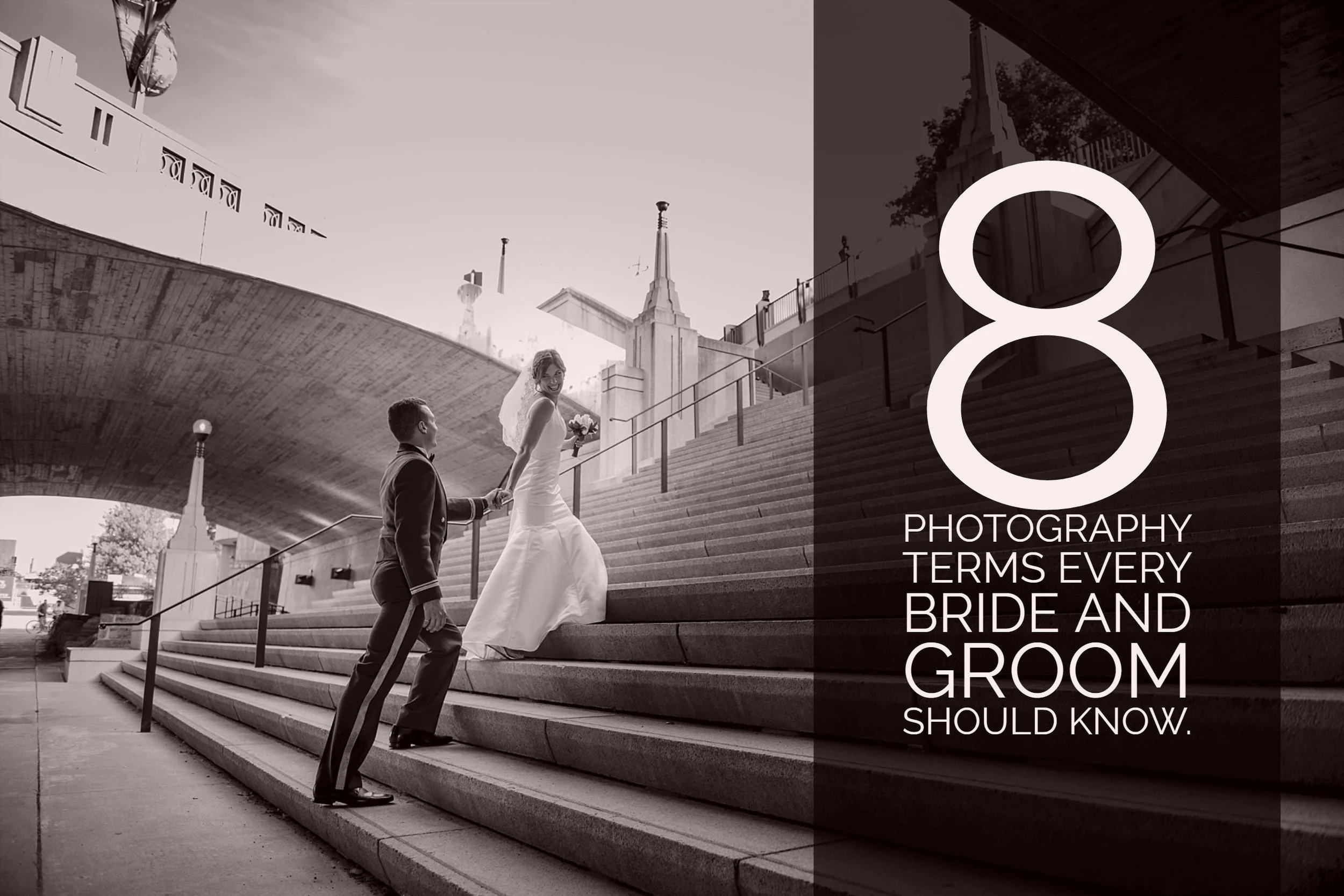Planning a wedding can be overwhelming. You have to know enough about the different types of photographer packages and styles, let alone all the other wedding vendors, in a very short period of time. If you are like most brides and grooms, where you don't have the help of a wedding planner, you might have to go through many vendors before you find the right one for your special day.
If you have ever come across the term "RAW files" and asked yourself: what the hell does that mean?", then you're in luck! In this post, I will be going over some photography terms (and phrases) you'll likely come across when shopping for a wedding photographer. After reading this post, you'll hopefully have a better understanding of what your local photographers are offering and decide whether they are right for you!
1. Digital
Many brides and grooms-to-be don't know this, but you actually have a choice whether you want your wedding photographer to shoot with digital or film. One of the reasons digital is so popular in wedding photography is because they are very capable of shooting in challenging conditions. When you're dancing your first dance in a dimly-lit hall, you would likely want your photographer to have a digital camera to capture that moment. Digital cameras are fast, which means your photographer will (hopefully) never miss an important moment. Prints from digital cameras are also often easier and cheaper to produce, not to mention easier to retouch if needed. This is not to say that film photography is not great - we are seeing a resurgence of it, after all - it just produces challenges that your photographer can otherwise avoid.
2. High-resolution
Photographers will often deliver with high-resolution images. Many will include it in their wedding packages as a selling feature. High-resolutions images produces better prints than a low-resolution images. If you want to print on a canvas or blow up a photos enough to cover a wall, you will want high-resolutions images.
Low-resolutions images are usually smaller files. Photographers sometimes give couples digital proofs in low-resolution so that you can see which images you want to print or purchase in high-resolution. For posting on social media, a low-resolution image will do.
3. RAW Files
Think of RAW files like a digital film negatives. They are created in the camera with all the digital information a photographer can later use to process the image. RAW files cannot be directly uploaded on social media and specific programs are often required to open them (like Lightroom or Photoshop). RAW files are what photographers work with (adjust lighting, retouch faces, modify colours, etc.) before producing a high-resolution image, often in a JPEG format. Many photographers don't give away RAW files because they are considered unfinished products, but some do charge if clients want them, often for a huge sum and for archival purposes only.
4. Natural Light Photographer
Many couples will commonly run into photographers who describe themselves as natural light photographers. These are photographers who value the use available light, often to create a more natural, softer look in their images. There are many amazing natural-light photographers out there. Unfortunately, it can also sometimes mean that the photographer does not know how to use flash. And this should give you pause. Natural light wedding photography is great when you have endless amount of sunshine, but when the wedding is held in the evening in the fall, or inside a dimly-lit hall or church, you would probably want to know whether your natural light photographer can shoot in these conditions.
5. First Look Photos
Many brides and groom now opt to have a their "first look" captured by their photographer. These photos are often taken before the ceremony happens to, as the name suggests, capture the first time the bride and groom see each other. There are many benefits to having a "first look." To me, the most important of these is having a private and quiet moment where the bride and groom can just be themselves, to hug and kiss and cry and not have to feel like they have to hold back before the craziness of the wedding celebration. As a photographer, first look photos are often the most romantic and genuine photos of the day.
6. Deposit/Retainer
Like most wedding vendors, photographers will ask for a deposit or retainer, which will hold the booking for your wedding day. This can range from 30% to 60% percent of the total cost. Some photographers will also have flexible payment plans where you can schedule when you want to pay and how much. Deposits are often non-refundable amount in case the couple, for whatever reason, cancels the wedding. The most important thing about deposits is that it builds trusts between you and the photographer.
7. Shot list
A shot list is what you should provide your photographer if you have must-have photos in mind. This can be something like your wedding dress hanging, or photos with certain members of the wedding party. A good photographer will generally ask you for this list in advance. Your photographer will have likely shot many weddings and probably already have an idea of what couples generally want, but to ensure that nothing important is missed, a shot list can help the photographer prioritize certain shots or images.
8. Shooting timeline
Like the shot list, every wedding photographer will want to know the wedding timeline in advance. Your timeline will include, for example, when the first look will happen, how much is devoted to the ceremony, and the family portraits after. For me as a photographer, knowing the timeline is extremely important in how I approach the day, particularly since I want to be able to tell a story of my couple's wedding day. Having a clear and realistic timeline gives me an idea of what to expect, what equipment I'll require for certain moments, and have a plan B in case something doesn't go according to plan. Having a clear timeline is particularly important for cultural weddings where there are certain rituals and ceremonies that you might not necessarily see in a traditional western-style wedding.
If you can think of other terms you've encountered while shopping for a photographer that left you scratching your head, let me know and we can make an additional list!

